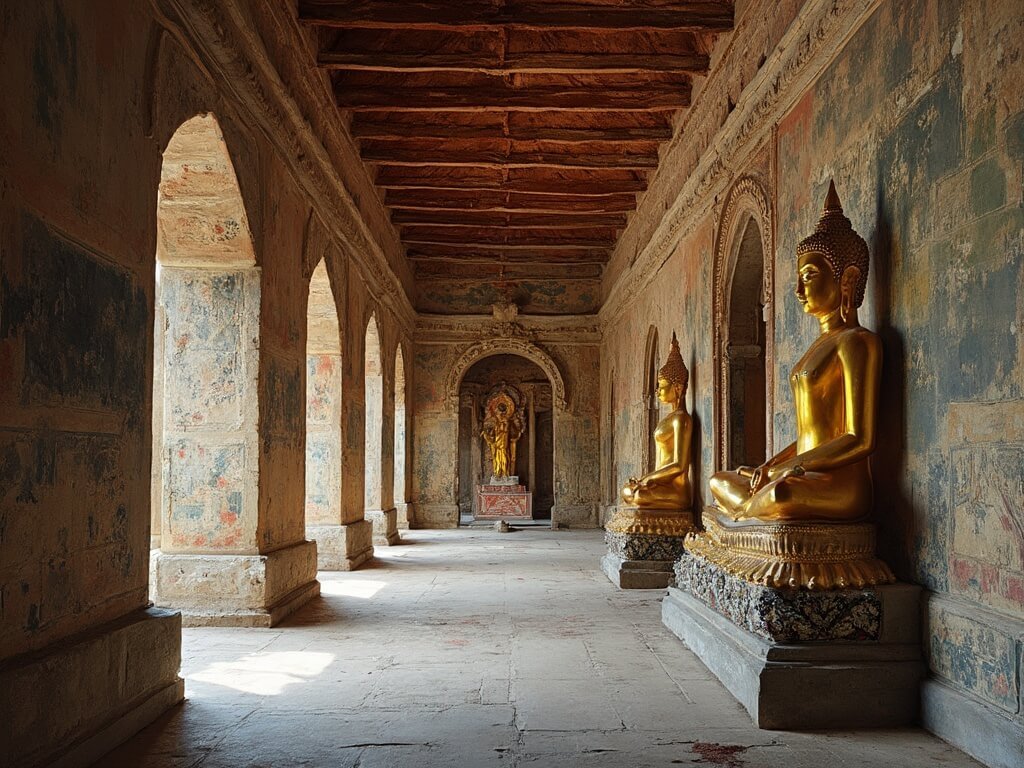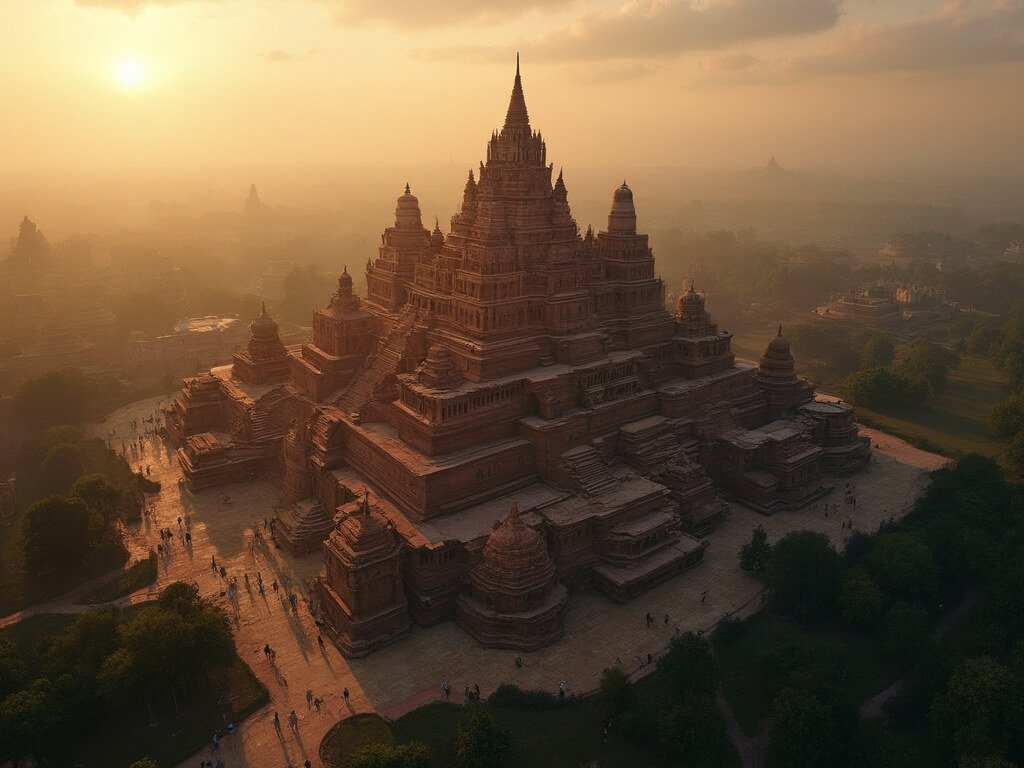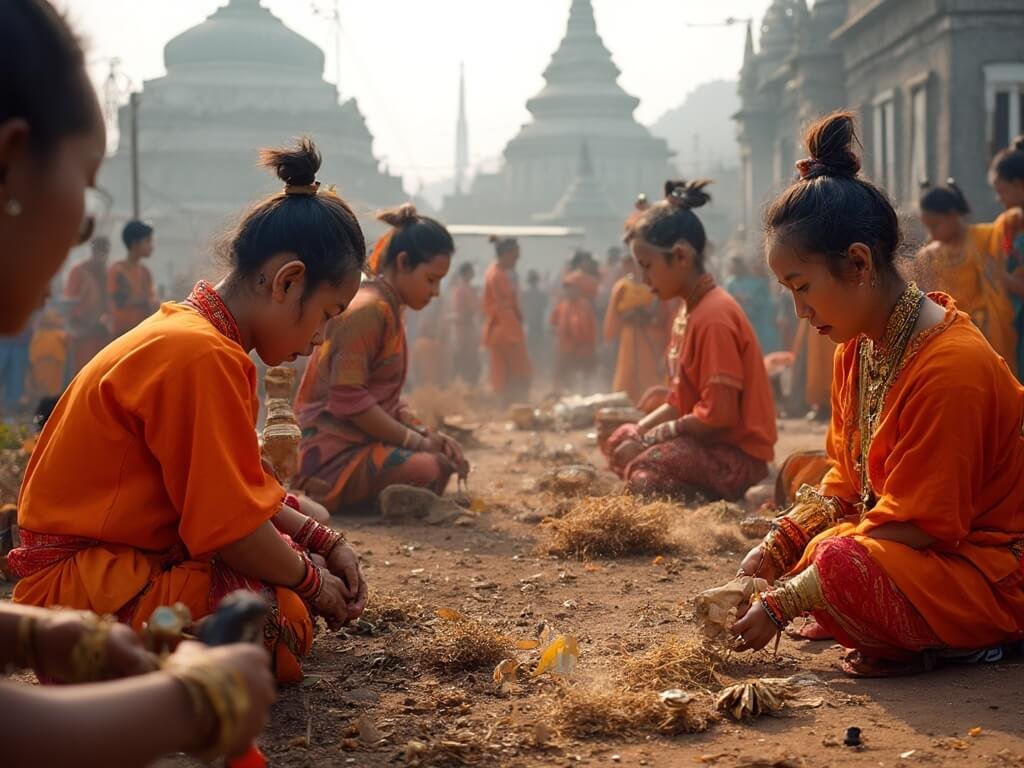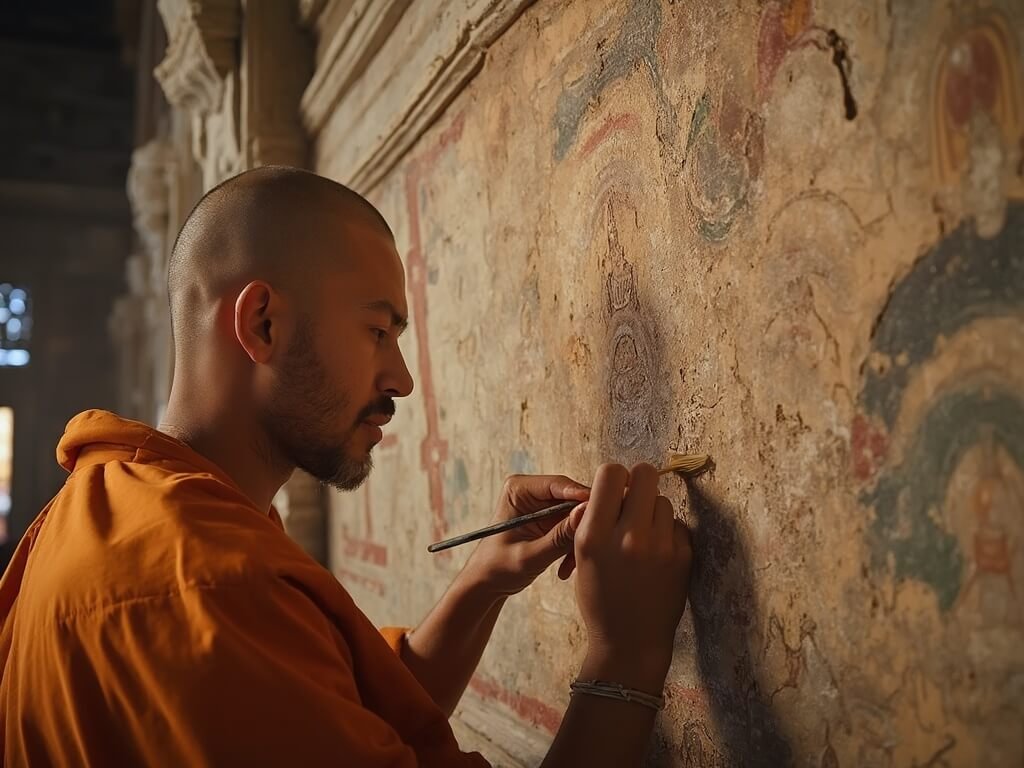Ever wondered what 2,200 ancient temples scattered across a mystical landscape look like? Welcome to Bagan, Myanmar’s archaeological marvel that’ll make your history-loving heart skip a beat.
My first glimpse of Bagan was at sunrise – a misty landscape dotted with thousands of brick-red temples piercing through morning fog. The sheer scale was breathtaking. More than just stone structures, these temples whisper stories of an extraordinary civilization that thrived between the 9th and 13th centuries.
Bagan: Where History Breathes
Imagine a city that was once the beating heart of the Pagan Kingdom – a center of religious scholarship, artistic innovation, and cultural sophistication. From 1044 to 1287 CE, this remarkable place wasn’t just a city; it was a beacon of Buddhist learning that attracted scholars from across Asia.
Key Facts That’ll Blow Your Mind:
- Over 10,000 original religious monuments once stood here
- Currently 2,200 temples and pagodas remain
- UNESCO World Heritage Site since 2019
- Attracted scholars in languages, astrology, medicine, and law
The Temple Evolution: From Stones to Stories
Bagan’s temples aren’t just buildings – they’re living narratives of architectural innovation. Picture this: craftsmen blending Mon and Indian influences to create uniquely Burmese styles.
Architectural Styles That’ll Make You Go “Wow”:
- Stupa-style (solid structures)
- Gu-style (hollow temples with corridors)
- Constructed using intricate brickwork, stucco, and elaborate frescoes
- Multi-terraced pagodas with gilded spires
Challenges of Preservation: Nature vs. Heritage
Mother Nature hasn’t been kind to Bagan. Major earthquakes in 1975 and 2016 caused significant damage. Yet, the spirit of preservation continues, with ongoing restoration efforts protecting these irreplaceable monuments.
The Temple Styles: More Than Just Bricks
Bagan’s temples aren’t uniform – they’re a kaleidoscope of architectural brilliance:
- Relic-shaped domes
- Tomb-shaped structures
- Sinhalese and Indian variant designs
- Ornate murals that tell complex stories
- Terra-cotta tile work that’ll make architects weep
Buddhist Symbolism: Deeper Than You’d Expect
These aren’t just tourist attractions. Each temple enshrines sacred Buddhist relics – from Buddha’s hair to bones. The central chambers feature Buddha images precisely positioned facing cardinal points, embodying deep spiritual mathematics.
Must-Visit Temples That’ll Leave You Speechless
1. Ananda Temple: The Holy Grail
- Built in 1105 CE
- Four gilded standing Buddhas
- Considered the most preserved temple
- Absolutely photogenic, especially when lit at night
2. Dhammayangyi Temple: The Mysterious Marvel
- Largest temple in Bagan
- Unfinished massive brickwork
- Comes with legendary tales of King Narathu
- Has an eerily haunting reputation
3. Thatbyinnyu Temple: Touching the Sky
- Stands 66 meters tall
- Symbolizes innovative Burmese architecture
- Currently undergoing earthquake restoration
Practical Travel Insights
Best Time to Visit: November to February (dry season, cooler temperatures)
Transportation Options:
- E-bikes
- Bicycles
- Horse carts
- Taxis
- Walking tours
Pro Tips for Temple Explorers:
- Respect religious customs
- Remove shoes
- Dress modestly
- No climbing on restricted structures
As the sun began setting on my first day in Bagan, casting long shadows across millennia-old temples, I realized this wasn’t just a destination. It was a time machine, transporting visitors through centuries of human creativity, spiritual devotion, and architectural genius.
The landscape continued to unfold, promising more stories waiting to be discovered, more mysteries longing to be unraveled.
Explore more design inspiration with our related features like the Wabi-Sabi Garden or the serene Japanese Minimalist Twilight Room.
Cultural Immersion: Beyond the Tourist Trail
Ever wondered what happens when ancient spirituality meets modern community?
Bagan isn’t just a museum – it’s a living, breathing cultural ecosystem where centuries-old traditions pulse through daily life.
Local Communities: The Heartbeat of Preservation
Temples aren’t static monuments here. They’re vibrant community centers where:
- Religious festivals burst with color and energy
- Local artisans continue generations-old craft traditions
- Buddhist rituals seamlessly blend with contemporary life
- Community economic opportunities emerge around temple tourism
I watched a young monk carefully restoring ancient murals, his movements as precise as his ancestors’ might have been centuries ago. Each brushstroke wasn’t just preservation – it was a connection to living history.
Tourism’s Double-Edged Sword: Opportunity and Challenge
UNESCO World Heritage Site: Bagan faces a delicate balance between global fascination and cultural integrity:
Challenges:
- Potential over-commercialization
- Environmental wear from increasing visitor numbers
- Risk of transforming sacred spaces into mere photo opportunities
Opportunities:
- Economic development for local communities
- Global cultural exchange
- Funding for critical conservation efforts
- Increased international understanding of Myanmar’s rich heritage
Digital Innovation: The Future of Temple Exploration
Technology is revolutionizing how we experience ancient sites:
- Virtual reality temple tours
- Interactive archaeological mapping
- Augmented reality historical reconstructions
- Digital preservation techniques
These innovations mean anyone worldwide can now explore Bagan’s mysteries, democratizing access to this incredible heritage. Learn more from the Complete Guide to Bagan’s Archaeological Wonders.
Sustainable Tourism: A Collaborative Approach
UNESCO’s involvement has transformed conservation strategies:
- Stricter access controls
- Community-focused restoration projects
- International academic collaboration
- Ethical tourism guidelines
The goal? Protecting Bagan not just for tourists, but for future generations of Myanmar’s people.
Traveler’s Ultimate Checklist: Bagan Insider Secrets
What Every Temple Explorer Must Know:
- Minimum recommended stay: 3–4 days
- Best viewing times: Sunrise / Sunset
- Must-bring items:
- Lightweight, respectful clothing
- Comfortable walking shoes
- Water bottle
- Sunscreen
- Portable charger
Pro Tip: Book a sunrise hot air balloon ride. Watching 2,200 temples emerge from morning mist is a once-in-a-lifetime experience.
Practical Travel Wisdom
Transportation Options:
- E-bikes (most popular)
- Bicycle rentals
- Guided tours
- Horse cart experiences
Budget Expectations:
- Temple zone entry: $20–$25
- E-bike rental: $5–$10 per day
- Guided tour: $30–$50
Safety and Respect: Your Moral Compass
Golden Rules for Temple Visitors:
- Dress modestly
- Remove shoes before entering
- Ask permission before photographing monks/locals
- Support local businesses
- Practice cultural humility
The Last Word: Why Bagan Matters
Bagan isn’t just about ancient stones. It’s a testament to human creativity, spiritual devotion, and cultural resilience.
Each temple tells a story – of kings and monks, of artistic brilliance and spiritual seeking. By visiting responsibly, you become part of that ongoing narrative.
Your journey through Bagan’s temples isn’t just travel. It’s a pilgrimage through human history.
Ready to unlock the magic of Myanmar’s archaeological wonder? Bagan awaits.
Explore More Cultural and Design Inspirations:
- Modern Japanese House
- Scandinavian Japanese Interior
- Wabi-Sabi Garden
- Japandi Architecture
- Zen Bathroom Tranquility












